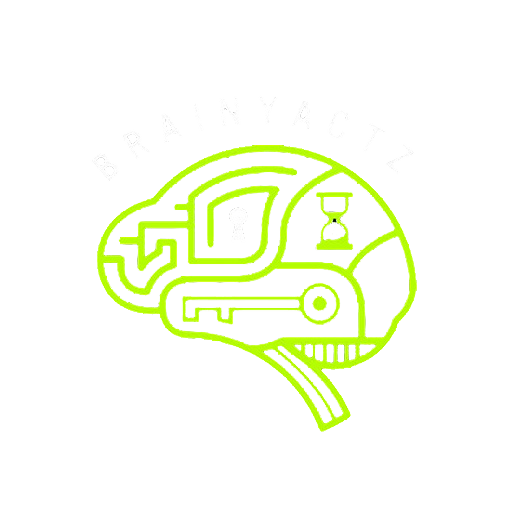Corporate environments often crave fresh methods to boost management dynamics and enhance the team’s collective intelligence. Escape rooms serve as an innovative playground for professionals to sharpen their problem-solving skills while tapping into their creativity. This unique mix of fun and challenge fosters camaraderie and fine-tunes a team’s ability to work together effectively in person or as a virtual event.
In this article, readers will uncover the secrets to planning an unforgettable escape room adventure that strengthens team bonds and ignites collaborative sparks. Whether your group is onsite or online, you’ll find strategies here that transform the typical team-building day into an extraordinary experience.
Key Takeaways
- Escape rooms enhance team communication, trust, and problem-solving skills
- Proper preparation and debriefing are vital for a successful escape room experience
- Customized themes allow teams to align activities with company values and goals
- Virtual escape rooms effectively connect and engage remote teams in collaborative efforts
- Strategic role assignment according to individual strengths leads to team success in escape rooms
Unleashing Team Potential Through Corporate Escape Rooms

Step into the world of corporate escape rooms—a thrilling exercise designed to break the monotony of everyday employment and forge stronger teams in the fires of fun challenges. These intriguing environments are more than just games; they’re a catalyst for boosting morale and sharpening minds. Within the walls of an escape room, colleagues can transition from the familiar grind of work to bursts of laughter and excitement, creating memories that bring them closer together.
Discover how these carefully crafted scenarios push teams to their full potential, encouraging clear communication and collective problem-solving. And as the final puzzle falls into place, the real victory is not just the escape—it’s the measurable surge in motivation and unity among team members, ready to tackle any task with renewed vigor.
Defining Corporate Escape Rooms and Their Benefits
Corporate escape rooms serve as dynamic arenas where office culture can transform, finding new strengths through shared learning experiences. With a facilitator guiding the adventure, participants weave through a narrative that demands collective intelligence and problem-solving. As teams navigate challenges, they make vibrant memories and witness a noticeable uplift in morale, anchoring an esprit de corps that follows them back to the workplace.
How Escape Rooms Amplify Team Dynamics
Within the intricate maze of an escape room, teams face riddles that test their collective logic. The space becomes charged with the vital energy of collaboration as each member contributes unique skills to crack codes and solve puzzles. It’s like watching a group of individuals envelope themselves in a shared mission, where success hinges not on competition but on the seamless integration of diverse talents.
- Participants enter the escape room, each with their own strengths and perspectives.
- The game unfolds, presenting a series of riddles and logic-based challenges.
- Members share ideas and collaborate, each person becoming an integral part of the team’s efforts.
- The group dynamically shifts roles and responsibilities as needed to navigate the maze effectively.
- Through this process, teams strengthen their collaborative muscles, resulting in heightened teamwork.
The Role of Corporate Escape Rooms in Problem-Solving
Teams unearth their true problem-solving prowess in the winding labyrinths of San Diego’s most immersive escape rooms. Here, under the ticking clock of an exhilarating scenario, leadership and innovation aren’t just buzzwords—they’re skills honed in real time. Team members bring together their collective insight, fostering an environment where new solutions emerge from the synergetic fusion of individual talents.
Measuring Success Post-Escape Room Team Building
After the adrenaline of the escape room subsides, companies gauge the impact of the activity on their community. Evaluating team building takes various forms, from observing enhanced stress management skills to witnessing a strengthened sense of unity among colleagues. A simple “password” for success in this context is the visible transfer of in-room collaboration to daily company operations.
Tailor-Made Escape Room Themes for Team Building

Corporate escape rooms offer a canvas where the brain’s puzzle-solving abilities are put to a delightful test. Every theme is like a jigsaw puzzle, intricately designed to illuminate lessons learned within the organic chaos of fun and urgency. Through such bespoke experiences, organizations imbue a sense of their core values into the heart of each adventure, transforming an ordinary team-building event into a personalized narrative.
After the thrill, the debriefing session provides a moment for reflection, allowing team members to process the impact on their collective spirit. Each unique theme helps to tighten the weave of team cohesion, leading to a more united and efficient workforce.
Innovative Themes That Foster Teamwork
Escape rooms today stretch far beyond the typical lock-and-key concept, urging participants to think outside the box in settings that inspire creativity. A team locked in a space-themed room must draw on each member’s ability to think laterally, turning the humdrum scavenger hunt into a cosmic quest that revolutionizes the traditional team experience. With each clue conquered, they build a path to escape and a more harmonious atmosphere of joint effort and shared success.
Customizing Themes to Align With Corporate Values
Escape rooms offer a unique platform for businesses to reflect their core principles in the very fabric of their activities. Creating scenarios that echo a company’s values reinforces those ideals among team members and helps realign their focus toward the common goal. This customization bridges the gap between the virtual team and the workplace, leading to more effective collaboration and marketing of the company’s mission:
- Design puzzles that reflect the company’s problem-solving methodologies.
- Incorporate real-life examples mirroring workplace scenarios.
- Embed company values into the clues, driving home the importance of these principles.
- Use feedback and faq sessions post-escape to tie back the lessons to everyday work life.
The Impact of Diverse Themes on Team Cohesion
Amid the growing trend of remote work, corporate escape rooms offer a tangible space where critical thinking leaps off the paper and into action. As teams decode a cipher and navigate through the varying themes, the exchange of ideas and feedback blossoms into a deeper kinship. This process carves a path for individuals scattered across various locations to build a cohesive unit, bridging distances with every shared triumph.
Step-by-Step Guide to Organizing an Escape Room Event

Organizing a successful escape room event for a corporate team requires thoughtful preparation to enhance problem-solving skills and build a cohesive unit capable of tackling any task. The initial steps include setting clear objectives and ensuring the event aligns with the company’s goals and the team’s needs. Attention to detail is critical when selecting the escape room that will best challenge and engage employees, providing an enriching experience for all. A team must be adequately prepared for the adventure ahead before facing the puzzles and mysteries. Post-event, a structured debriefing session allows participants to reflect on their accomplishments and the strategies that led to success, turning the day’s excitement into lasting lessons in teamwork and communication.
Initial Planning and Goal Setting for Your Team
Launching a corporate escape room event starts with a clear vision of the quest ahead. An astute organizer weighs the goals, ensuring the pursuit of teamwork becomes a seamless fit within the company’s financial scope. Viewing the escape room not merely as a puzzle to be solved but as a tool, teams will emerge aligned in focus and collaboration, setting the stage for a transformative team-building experience within a sensible budget.
Tips for Choosing the Right Escape Room
When the clock starts ticking in an escape room, selecting an experience that energizes and engages every participant is essential. A successful choice hinges on an adventure game that balances difficulty with entertainment, ensuring a boost in team productivity post-event. Review the escape room’s policy on challenge levels and support, matching them to your team’s knowledge base and desired outcomes to ensure an optimal experience for all.
Preparing Your Team for the Challenge
Before stepping into the imaginative space of an escape room, effective team preparation is key: This not only sets expectations but also primes the group for the collaborative experience ahead. It’s essential to ensure each member understands the objective and the value of each person’s contribution to navigating the challenges as a unit. Establishing clear roles and open communication lines can significantly affect how effectively the team operates under the pressure of a ticking clock.
- Clarify the escape room objectives and expected outcomes with the team members.
- Assign roles based on individual strengths and encourage flexibility in role-sharing.
- Host a pre-game session to discuss strategies and encourage input from all members.
- Strengthen communication by setting ground rules for discussing ideas and solutions.
Debriefing and Learning From the Experience
Once the dust settles and the last code is cracked, a team should circle back to reflect on the escape room saga, parsing out the wins, challenges, and learning curves encountered. This debrief allows participants to acknowledge individual contributions and dissect the collective strategies that led to their success, crystallizing those tactics into tools that can enhance future collaborations.
Strategies for Maximizing Teamwork in an Escape Room

While the allure of escape rooms often lies in the thrill of the unknown, the key to success is a strategy that taps into each team member’s potential. To elevate a group’s effectiveness, it’s essential to leverage each individual’s strengths by assigning roles that highlight their abilities.
Additionally, fostering an environment where open communication is the norm can lead to breakthroughs in collective problem-solving. As the clock ticks, employing time management techniques ensures that the group maintains focus and operates efficiently, turning a fun activity into a powerful lesson in teamwork. If used adeptly, these strategies can turn an ordinary team into a high-functioning unit capable of conquering any escape room challenge together.
Assigning Roles Based on Team Members’ Strengths
The art of aligning roles with the innate talents of each team member can transform an escape room challenge into a symphony of collaborative success. When individuals are tasked with responsibilities that resonate with their strengths, be it analytical thinking, creative insight, or organizational skills, the result is often a more cohesive unit that navigates puzzles with precision and confidence. This strategic placement not only uplifts the individuals, making them feel valued and competent but it also fortifies the group’s ability to confront and conquer complexities together.
Encouraging Open Communication and Collaboration
Creating an atmosphere where every member feels comfortable to speak up and share ideas is a cornerstone of success in escape rooms. This open dialogue sparks innovation and builds trust, propelling teams to solve puzzles with greater efficiency and solidarity. This kind of communication helps to weave patience and respect into the fabric of team dynamics, allowing for a seamless collaboration that can turn a challenging situation into a victorious one.
Time Management Techniques for Better Performance
Time management is the secret weapon in escape rooms for teams aiming to emerge victorious. Every tick of the clock guides participants to prioritize tasks, allocate minutes for brainstorming and problem-solving, and keep track of progress against the remaining time. This systematic approach enables teams to channel their energies efficiently, transforming a pressured environment into a masterclass in effective time use:
- Determine the most critical puzzles and assign time slots for solving them.
- Set clear mini-deadlines within the game to ensure steady progress.
- Designate a timekeeper within the team to provide updates and keep everyone on track.
Conclusion
Corporate escape rooms are essential for solidifying teamwork, as they challenge teams to solve puzzles collaboratively under pressure. These activities harness individual strengths and encourage open communication, enhancing team cohesion and problem-solving skills. By participating in escape rooms, teams can transfer the collaboration and creativity experienced during the game into their everyday work activities. As a result, escape rooms stand out as an effective and engaging tool for corporate team-building, driving better performance and a united workforce.

